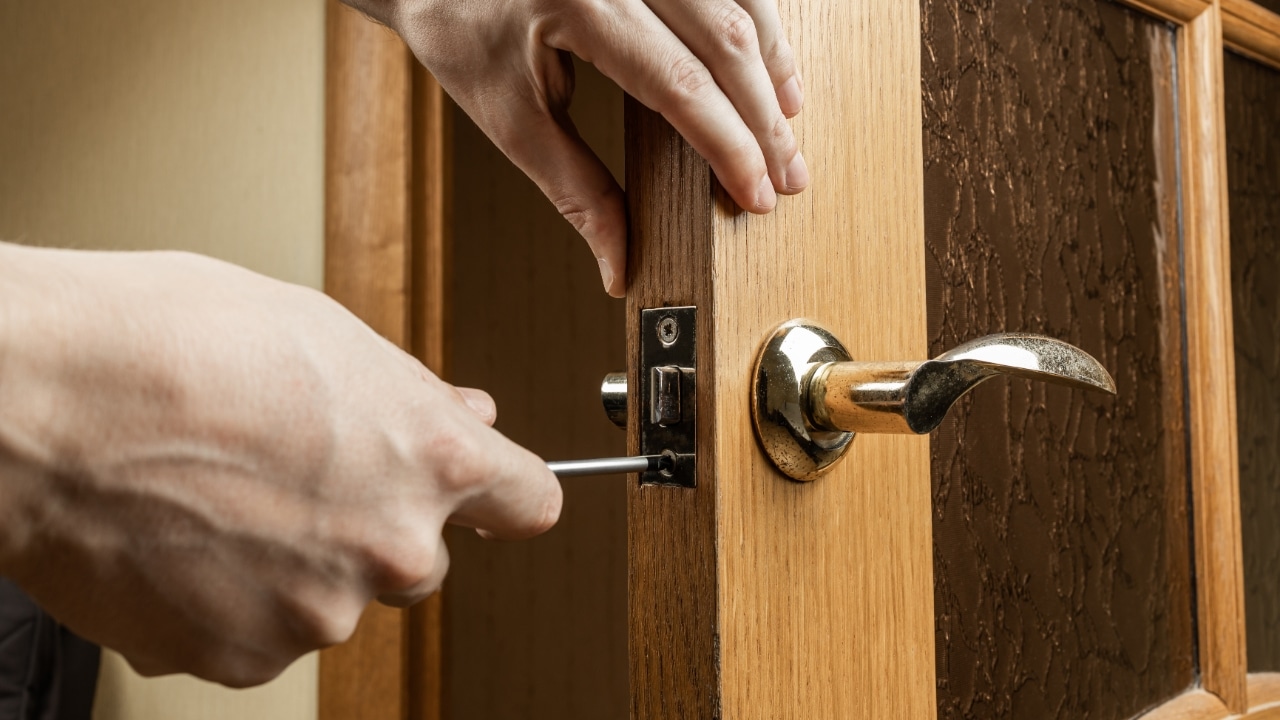As the cost of living continues to climb, managing your finances smartly is more critical than ever. Adopting frugal living habits can significantly cut down your expenses, paving the way for a more secure financial future. And you don’t have to sacrifice all of your little pleasures, either.
We’ve got 25 practical, frugal living tips that can potentially help you save thousands of dollars. It’s not about missing out. It’s about spending smart and making the most of what you have.
#1. Track Your Spending

Image Credit: Shutterstock
Understanding where your money goes is the first step in frugal living. Start by tracking your expenses for a month. Use a simple spreadsheet or a budgeting app to categorize your spending. This visibility will help you identify areas where you can cut back. Small changes, like eating out less or canceling unused subscriptions, can add up to significant savings over time.
#2. Create a Budget

Image Credit: fizkes/Shutterstock.
Once you know your spending habits, create a budget. Allocate funds for your necessities, savings, and a little for leisure. Stick to this budget diligently. A budget helps you control your spending and ensures you’re saving consistently. Remember, a budget isn’t about restriction and austerity, it’s about making your money work effectively for you.
#3. Embrace Meal Planning

Image Credit: Shutterstock.
Meal planning is so good for saving money. Plan your meals for the week, make a shopping list, and stick to it. This approach reduces impulse buys and food waste. Cooking at home is generally cheaper than eating out, and with batch cooking, you can save both time and money.
#4. Shop with a List

Image Credit: Shutterstock.
Always shop with a list, whether you’re at the grocery store or the mall. This helps you stay focused on what you need, avoiding unnecessary purchases. It’s easy to get tempted by sales and discounts, but if it’s not on your list, it’s not in your budget.
#5. Cut Down on Utilities

Image Credit: Shutterstock.
Reducing your utility bills can lead to significant savings. Simple actions like turning off lights when not in use, fixing leaks, using energy-efficient appliances, and adjusting your thermostat can reduce your utility bills. Consider investing in smart home devices that help monitor and save energy.
#6. Use Public Transportation

Image Credit: Shutterstock.
If possible, use public transportation instead of driving. It’s cheaper than fueling, maintaining, and insuring a car. Plus, it’s better for the environment. If public transport isn’t an option, consider carpooling or biking.
#7. Cancel Unnecessary Subscriptions

Image Credit: Shutterstock.
Review all your subscriptions and memberships. Cancel anything you don’t use regularly. Many people pay for multiple streaming services, magazines, or gym memberships they rarely use. Cutting these can free up a significant amount of money each month. You’ll likely be surprised by just how many unused subscriptions you have.
#8. Buy Second-Hand

Image Credit: Shutterstock.
Consider buying second-hand items for things like clothes, furniture, and electronics. Thrift stores, garage sales, and online marketplaces are treasure troves for good quality, pre-owned items at a fraction of the cost.
#9. DIY Home Repairs and Improvements

Image Credit: Shutterstock.
Learn to do basic home repairs and improvements yourself. There are numerous tutorials online for everything from fixing a leaky faucet to painting a room. Doing it yourself can save you hundreds of dollars in professional fees.
#10. Grow Your Own Food

Image Credit: Shutterstock.
If you have space, start a small vegetable garden. Growing your own food can be a rewarding and cost-effective hobby. Even a few pots of herbs or tomatoes can cut down your grocery bill. If space is limited, stick to growing more expensive fruits and veggies that you buy regularly.
#11. Use Coupons and Cashback Apps

Image Credit: Shutterstock.
Take advantage of coupons and cashback apps for groceries and online shopping. These can provide significant savings over time. Be mindful to use coupons only for items you would normally buy.
#12. Reduce, Reuse, Recycle

Image Credit: ITTIGallery/Shutterstock.
Adopt the mantra of reduce, reuse, recycle. Before buying new, see if you can repurpose something you already own. Recycling and reusing saves money and helps the environment.
#13. Avoid Impulse Buys

Image Credit: Shutterstock.
Impulse buying can derail your budget. If you see something you want, wait a few days before purchasing. Often, the urge to buy will pass. If it’s something you truly need or want, plan for it and include it in your budget.
#14. Plan Vacations Wisely

Image Credit: Shutterstock.
Traveling can be expensive, but with smart planning, you can enjoy vacations without breaking the bank. Look for off-season deals, stay in budget accommodations, and eat like a local. Planning your itinerary in advance can save both money and time.
#15. Practice Preventive Healthcare

Image Credit: Shutterstock.
Investing in preventive healthcare can save money in the long run. Regular check-ups, a healthy diet, and exercise can prevent costly medical issues. Don’t neglect your health; medical bills can be one of the biggest unplanned expenses.
#16. Learn Basic Sewing

Image Credit: Shutterstock.
Learning basic sewing skills can extend the life of your clothes. Simple repairs like fixing a torn seam or replacing a button are easy to do and can save you from buying new clothes prematurely.
#17. Use the Library

Image Credit: Ermolaev Alexander / Shutterstock.
Libraries are an underutilized resource. You can borrow books, magazines, and even movies for free. Many libraries also offer free workshops, classes, and events that can be both educational and entertaining.
#18. Host Potluck Dinners

Image Credit: Shutterstock
Instead of dining out, host potluck dinners with friends and family. It’s a cost-effective way to socialize and enjoy a variety of dishes. It also distributes the cost and effort of cooking among all attendees.
#19. Brew Your Own Coffee

Image Credit: Shutterstock.
Brewing your own coffee at home instead of buying it daily can save you a surprising amount of money. Invest in a good coffee maker and discover the joy of a home-brewed cup.
#20. Shop Off-Season

Image Credit: Shutterstock.
Buy clothes and other seasonal items off-season when they are on clearance. You can get high-quality items at a fraction of the cost. Plan ahead and buy winter clothes in the summer and vice versa.
#21. Automate Savings

Image Credit: Shutterstock.
Set up an automatic transfer to your savings account each month. Treat it like a non-negotiable expense. This ensures you’re consistently saving without having to think about it.
#22. Downsize Your Home

Image Credit: Shutterstock.
If your current living situation is more than you need, consider downsizing. A smaller home can reduce your mortgage, taxes, insurance, and maintenance costs. It’s a significant lifestyle change but can lead to substantial financial savings.
#23. Cook in Bulk

Image Credit: Shutterstock.
Cooking in bulk and freezing meals for later can save both time and money. It reduces the temptation to eat out and ensures you always have a home-cooked meal ready. It’s also a great way to take advantage of bulk buying and sales.
#24. Barter Services

Image Credit: Wiki Commons.
Consider bartering services with friends or neighbors. For example, if you’re good at gardening, you could offer to take care of a neighbor’s garden in exchange for them helping you with something they’re skilled at, like carpentry.
#25. Unplug Electronics

Image Credit: Shutterstock.
Unplug electronics when they’re not in use. Many devices consume power even when turned off. Unplugging them can reduce your electricity bill and also helps to protect your devices from power surges.
The post Dodging Budget Blunders to Keep Your Finances Secure first appeared on Thrifty Guardian.
Featured Image Credit: Shutterstock / goffkein.pro.
The content of this article is for informational purposes only and does not constitute or replace professional financial advice.
Thrifty Guardian was founded as a way to help parents lead richer lives through money saving tips, side hustle ideas, and parenting advice (including fun DIYs and recipes!)




